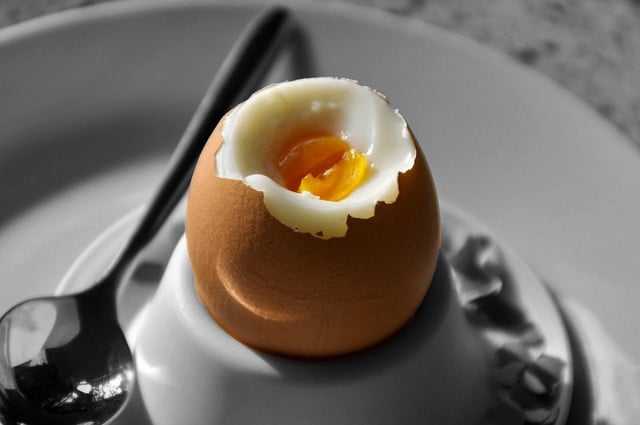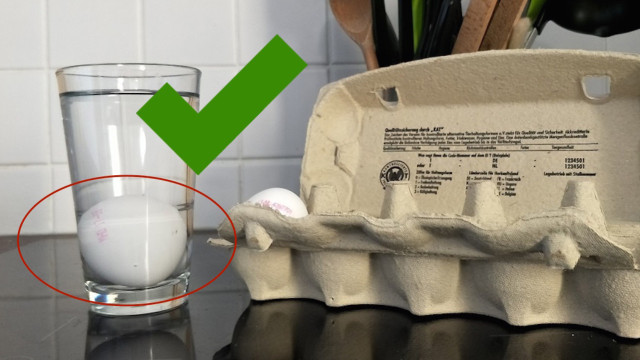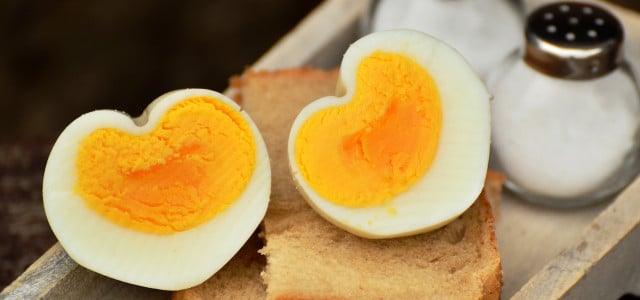Do you want to know how long eggs need to boil until they are to your satisfaction? Then this article is for you: We’ll explain how to boil the perfect egg — soft or hard-boiled.
Boiling the perfect egg is not easy: Sometimes the yolk turns out too hard, your soft-boiled egg turns out too soft, or the egg even bursts open when cooking. This article will show you how to change that.
How Long Should You Boil Eggs?
Place medium-sized eggs in boiling water. Rinse them in cold water to cool them after cooking. Depending on what you prefer, you need to cook the eggs as follows:
- 4 minutes for soft-boiled eggs: The egg white is firm, but the egg yolk is still very runny — a perfectly boiled breakfast egg.
- 7 minutes for snack eggs: The egg yolk is thickening.
- 11 minutes for hard-boiled eggs: The egg yolk is firm and easy to cut.
If you use smaller eggs, you have to cook them about 30 seconds shorter. Larger eggs should remain in the water for an additional 30 seconds.
At Which Temperature Should You Boil Your Eggs?

How long you boil eggs is not the only factor you need to consider. You also need to boil the eggs at the right temperature.
How much time the egg needs to reach a given internal temperature depends on several factors:
- The size of the egg: As mentioned above, larger eggs take longer than smaller eggs.
- The egg temperature: If you just took them out of the fridge, eggs need to cook up to one minute longer.
- Your altitude: Most of us cook eggs in water that has begun to bubble. That is about 212°F at sea level but only 194°F at 10,000 ft. Meaning the higher your elevation, the longer the egg has to cook.
Boil your eggs at the right temperature to get your perfect boiled egg:
- The egg white begins to thicken at 143°F.
- By the time it reaches 145°F, the egg white is no longer runny.
- At about 151°F, the egg yolk is soft like wax.
- and at 158°F, the yolk is firm and can be cut with a knife.
How To Tell if Your Eggs Are Still Good?



Before you boil an egg, you should check if it is still good. You are unsure? Then don’t just throw it away. There are easy ways to tell if eggs are good or bad. The easiest test is the ‘float egg test‘. Simply put the egg in a glass of water. If it floats, it isn’t good anymore. If it sinks to the bottom, you can still eat it.
Read more on Utopia:
- Organize Your Fridge: How to Choose the Right Temperature and Spot for Your Groceries
- Reuse Vegetable Scraps: Skip the Trash and put Food back on your Plate
- Vegan Spreads: DIY Dairy Free Spreads with Only 2 Ingredients
Do you like this post?






